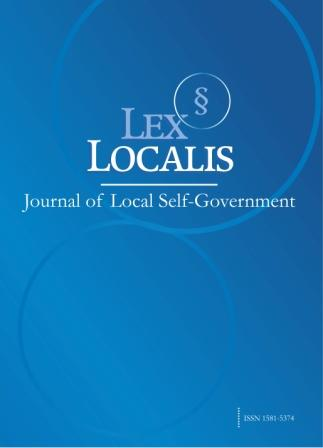Review of China’s Energy Law and Its Impact on China’s Future Energy Development
DOI:
https://doi.org/10.52152/800023Keywords:
Energy Law; Renewable Energy; Energy Market; Energy TransitionAbstract
In order to achieve the goals of carbon peaking and carbon neutrality, China has enacted the Energy Law. This fundamental law defines energy for the first time, systematically builds an institutional framework covering development and utilization, strategic planning, reserves and emergency response, and innovatively proposes policy tools such as a dual-control mechanism for the total volume and intensity of carbon emissions, and green power certificates for renewable energy sources, with the aim of reshaping the system of energy supply and demand, as well as the structure of the market. Some of the law's shortcomings include: the broad content of the provisions makes it difficult to implement; there is no provision for the convergence of energy technology standards; and there is a lack of clarity in the division of powers and responsibilities between regulators. As the world's largest energy consumer, China's legislative practices will have a profound impact on the international energy landscape. At present, the energy industry is in a window of transformation and upgrading, the supply and demand system is facing systemic changes, and local enterprises are accelerating their participation in the international market competition, and competing for the right to speak in the industry through technological output and standardization. In the process of implementing the Energy Law, we must simultaneously amend the Renewable Energy Law of the People's Republic of China, the Energy Conservation Law of the People's Republic of China and the Coal Law of the People's Republic of China, and formulate more detailed and practical rules and regulations, which is an urgent task. Energy enterprises should enhance their digitalization and innovation capabilities, while foreign governments and companies should closely monitor China’s strategies for international energy cooperation and competition as outlined in the Energy Law.
References
White Paper: Remarkable Achievements Have Been Made in the Green and Low-carbon Transformation of China’ s Energy Structure. http://www.npc.gov.cn/npc/c2/c30834/202405/t20240508_436982.html, 2024-12-23.
Farahdilah Ghazali, Wan Mohd. Zulhafiz Wan Zahari and Ridoan Karim, "Energy Efficiency Management towards Sustainable Development: The Need for an Energy Efficiency Legal Framework." IIUM Law Journal, vol. 31, no. 2, 2023, pp. 179-206.
Jessie Honig, “Local Restrictions on Renewable Energy Siting in the United States.” Hastings Law Journal, vol. 74, no. 5, May 2023, pp. 1483-1512.
Anne Kallies, "New Directions of Legal Reform for Renewable Energy in Europe: From Single-Plant Support to Whole-of-System Approaches." Climate Law, vol. 6, no. 3-4, 2016, pp. 353-372.
Anna Butenko, "Sharing Energy: Dealing with Regulatory Disconnection in Dutch Energy Law." European Journal of Risk Regulation (EJRR), vol. 7, no. 4, December 2016, pp. 701-716.
Anne Kallies, "The Australian Energy Transition as a Federalism Challenge: (Un)Cooperative Energy Federalism?." Transnational Environmental Law, vol. 10, no. 2, July 2021, pp. 211-236.
Ngozi Maureen Agbasi, "The Emerging Trends in Energy Use and Legal Policies and Some Other Jurisdictions." International Journal of Comparative Law and Legal Philosophy, vol. 2, no. 1, 2020, pp. 158-165.
Wu Lei. Reshaping of Global Energy Supply Chains and China's Response [J]. Contemporary World, 2023,(12):30-35.
Pan Fengchao, Liu Qinming, Ye Chunming, & Liu Wenyi. Research on the configuration of distributed energy supply chain based on the improved firefly algorithm [J]. Energy Research and Information, 2022,38(01), 46-52.
James Prest, "Australian Renewable Energy Law: Carbon Lock-in or Clean Energy Transition?: The Pursuit of Policy Stability and Energy Security at Higher Levels of Renewable Generation." Renewable Energy Law and Policy Review (RELP), vol. 9, no. 1, December 2018, pp. 44-67.
Zhu Xuerui, “China's nuclear power safety operation level is the world's leading”[N]. China Energy News, April 22, 2024 (008).
Romain Mauger, "Forced Nuclear Energy Reactors Shutdown in France: The Energy Transition Act's Mechanisms." Journal of World Energy Law & Business, vol. 11, no. 3, June 2018, pp. 270-282.
Rafael Leal-Arcas , Mariya Peykova, Victoria Nalule & Pinar Kara, "Decarbonizing the Energy Sector." Journal of Animal & Natural Resource Law, 15, 2019, pp. 173-272.
Downloads
Published
Issue
Section
License
Copyright (c) 2025 Lex localis - Journal of Local Self-Government

This work is licensed under a Creative Commons Attribution-NonCommercial-NoDerivatives 4.0 International License.








